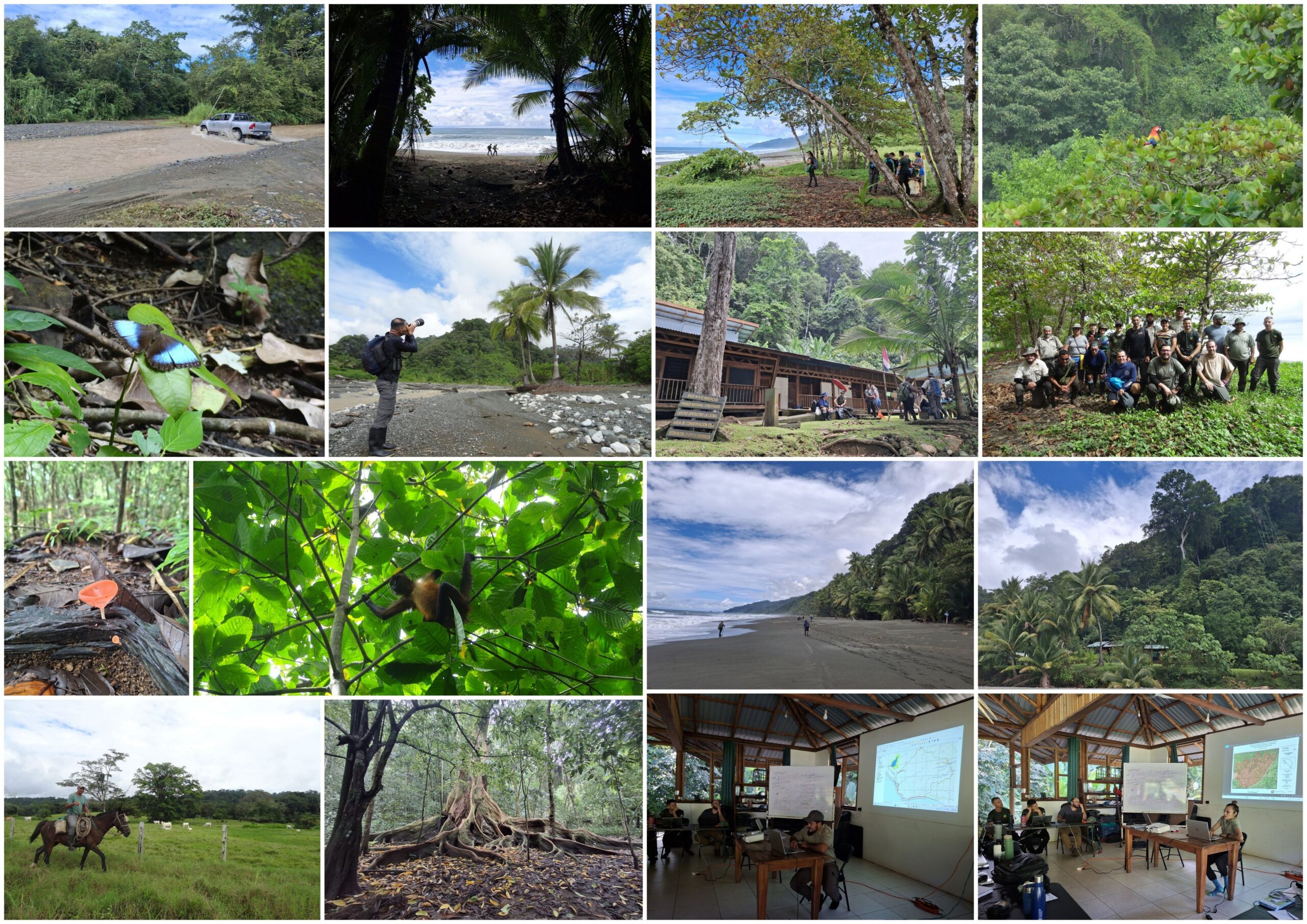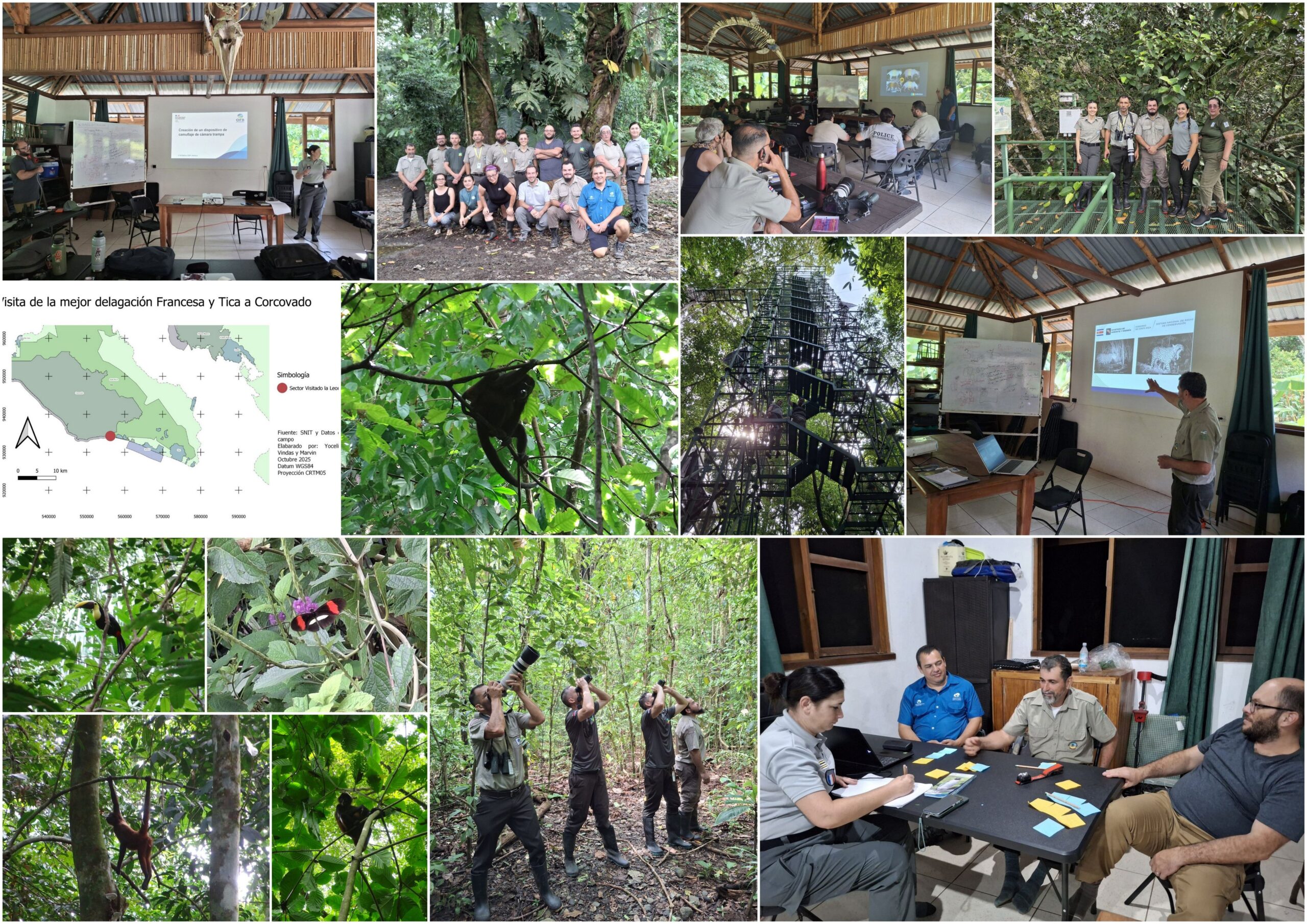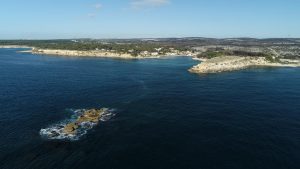French–Costa Rican Collaboration Strengthens Biodiversity Monitoring in Corcovado National Park
Central to Costa Rica’s Osa Peninsula sits Corcovado National Park, one of the most biologically rich areas on Earth. Corcovado is becoming a model for how international collaboration can strengthen biodiversity monitoring. Through the High Ambition Coalition for Nature and People’s (HAC N&P) Matchmaking Platform, Costa Rica and France are collaborating to update biodiversity data systems, train park rangers, and advance progress toward the Target 3 conservation goal.
Collaborating on a Commitment to Nature
Led by NatureXpairs in collaboration with Costa Rica’s National System of Conservation Areas (SINAC) and supported by the French Ministry of Ecological Transition, the French Biodiversity Office (OFB), and the HAC N&P Secretariat, the mission is enhancing Costa Rica’s biodiversity monitoring systems and data management in Corcovado National Park. French experts from Parc national des Écrins and OFB are sharing their knowledge of GeoNature, a French open-source platform for biodiversity data management, to strengthen Costa Rica’s capacity in data classification, analysis, and governance. This joint project directly addresses Theme 5: Monitoring and Reporting Progress under the HAC for N&P framework.
Corcovado’s Unique Ecosystems
Established in 1975, Corcovado National Park protects more than 45,000 hectares of rainforest, mangroves, and coastal ecosystems along Costa Rica’s southern Pacific coast. The park encompasses a wide range of habitats, including montane and cloud forests, mangroves, and freshwater swamps. It is home to extraordinary biodiversity: 140 mammal species, 367 bird species, 6,000 insect species, and 117 species of amphibians and reptiles. In addition, the park protects 500 species of trees and several endangered species, including wild cats and large reptiles. Yet, it has experienced significant anthropogenic threats from activities such as poaching and habitat degradation throughout its history.
Since 2012, Corcovado and SINCAC specialists have collected extensive monitoring data on terrestrial mammals using footprints, excrement, and camera traps. In 2022, they developed a national protocol for monitoring non-flying terrestrial mammals, with the goal of standardizing data collection and analysis across protected areas. Early results from 2023 indicate that Corcovado’s biodiversity remains strong. Species diversity and energy transfer indicators are rated “very good” and “good”, respectively, showing evidence of the forest’s resilience and potential for ecological recovery despite past human pressures.
While the outlook is positive, park managers face challenges in interpreting large volumes of data. The France-Costa Rica mission directly addresses these needs. Activities include data collection from monitoring cameras, improving data analysis and interpretation, and training local communities in participatory monitoring.

Photo 1 – A collage of photos of the workshop participants and their exploration into Corcovado National Park. (Credit Photo: Camille Monchicourt)
A Multi-Day Knowledge Exchange
The on-site mission in October 2025 brought together French and Costa Rican experts for 4 days of collaboration and two additional days of exploration. Activities included fieldwork, workshops, and hands-on training sessions.
Day 1 began with presentations on SINAC’s monitoring platform PRONAMEC (Programa Nacional de Monitoreo Ecológico/ National Ecological Monitoring Program) and France’s GeoNature system. The presentations sparked discussions about data sharing, access, and the use of AI (artificial intelligence) in ecological monitoring. The evening ended with a trip to monitor sea turtle nesting along the Pacific coast.
Day 2 consisted of fieldwork in Corcovado’s La Leona sector, followed by a “QGIS Mapping Challenge” that encouraged participants to leverage open-access data from platforms like GBIF, OSM, and Costa Rica’s SNIT to create digital biodiversity maps.
Day 3 centered around camera traps, where teams explored image analysis of traps using AI software such as AddaxAI and France’s DeepFaune. Participants focused on comparisons of large animals, testing these AI tools on over 6,000 trail camera images.
Day 4 concluded with a strategic vision discussion for PRONAMEC. Teams co-designed a roadmap for future national monitoring, with the final vision centering around national recognition, open-sourcing, and international connectedness of a platform to support sustainable management through reliable data.
Days 5-6 the team conducted wrap-up visits to the SINAC offices and another national park.
Strengthening Capacity and Connections
Participants praised the mission’s mix of technical exchange and connection, with a strong overall satisfaction in the collaboration. Costa Rican rangers described discovering “a new world” of data management and analysis tools. Both parties recognized AI-based systems as game changers in terms of time savings, efficiency, and reliability.
Expected outcomes of this collaboration include the full integration of Corcovado’s data into the national PRONAMEC platform, improved monitoring capacity, and long-term technical cooperation between French and Costa Rican conservation institutions. By pairing Costa Rica’s conservation leadership with France’s technological expertise, this partnership exemplifies how international collaboration under the HAC for N&P Matchmaking Platform can strengthen national biodiversity monitoring frameworks, ultimately advancing progress toward 30×30.

Photo 2 – A collage of photos of collaboration efforts between Costa Rica and France, through insightful presentations and field work. (Credit photo: Camille Monchicourt)
–Written by Vivian Maneval, High Ambition Coalition for Nature & People



